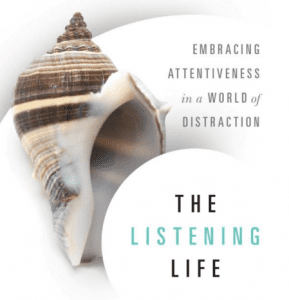 Kent A. Van Til, The Moral Disciple: An Introduction to Christian Ethics (Eerdmans, 2012)
Kent A. Van Til, The Moral Disciple: An Introduction to Christian Ethics (Eerdmans, 2012)
Reviewed by Wes Vander Lugt
There are many ways that scholars typically introduce Christian ethics. Some tell the story of Christian ethics from a historical perspective, like J. Philip Wogaman’s Christian Ethics: A Historical Introduction, 2nd edition (Westminster John Knox, 2011). Others try more creative ways of organizing the story, like Wells and Quash have done in Introducing Christian Ethics (Wiley-Blackwell, 2010) by identifying universal, subversive, and ecclesial ethics. Some summarize various issues in Christian ethics, like John Jefferson Davis’s Evangelical Ethics: Issues Facing the Church Today, 3rd edition (Zondervan, 2009). Others take a step back and explore the sources and structure of Christian ethics, whether interacting the Bible, Christian experience, Christian theology, moral principles, or a mix of these and more. And then there are those who explore Christian ethics according to the three great traditions of philosophical ethics: character, norms, and consequences. Robin Lovin’s An Introduction to Christian Ethics: Goals, Duties, and Virtues (Abingdon, 2011) falls in this category, and so does Van Til’s The Moral Disciple that we are looking at today.
In his introductory chapter, Van Til argues that since people have been building ethical houses out of character, norms, and consequences for thousands of years, “anyone who studies ethics today must use the same general structure,” albeit in a distinctly Christian way (13). I am not entirely sold by this argument, which set me slightly on the edge from the beginning. But that doesn’t negate the fact that there are many gems of insight in this book, and I want to start with those.
First, it should be mentioned at the outset that this is one of the most straightforward and plainly written book on Christian ethics I have ever read. Some scholars may attempt to write an “introduction” to Christian ethics, but it really ends up being an introduction to those who already know the technical language of academic ethics. This book is not like that, and I would be comfortable handing it to someone who has no background in Christian ethics. This is not an easy achievement to be sure, and Van Til should be commended for not writing to the academic guild.
Second, Van Til refuses to separate the action of Christian living from the Christian actor. He rightly recognizes that Christians are “responsible responders” in relationship with God, one another, and the rest of creation (39). What I admire about Van Til’s approach is that he does not waste space arguing whether virtue ethics or duty ethics or consequentialist ethics is best. He simply acknowledges that virtues, norms, and consequences all matter in a Christian account of the moral life, and gets on with the task of exploring these themes in turn. My critique at this point, however, is that Van Til doesn’t go quite far enough in showing how actor, action, and consequences are dynamically interwoven in the Christian life. His presentation is clear, but it is almost too neat, and doesn’t communicate the messiness and mix and tangle of our tragic-comic existence.
Third, a major strength of The Moral Disciple is how it discusses the place of Scripture in Christian ethics but refuses to talk about the “use of Scripture,” as if Scripture is some kind of ethics textbook (18). God did not give us Scripture to provide a list of moral rules; God gave us Scripture to show us the drama in which we are participants. Actually, Van Til refers to how we are “embedded in the biblical story,” but I have argued elsewhere why I think the theatrical metaphor is even more effective, because it emphasizes that we have a role to play in the story. Van Til is correct, therefore, to say that Scripture includes moral norms, encourages virtue, provides analogies for moral living, and shows us the way of living, but even more than that, Scripture transcribes the drama of salvation playing out since creation and invites our participation in that same drama.
I could say a lot more about particular strengths of this book (like his insistence that “if the consequences of our actions do not benefit the poor and marginalized, we are not doing good for those for whom God cares the most”), but I need to mention a few criticisms before bringing this review to a close. For one, when Van Til mentions that ethics has nothing to do with aesthetics (4), he not only misunderstands and denigrates aesthetics to mere “style,” but he also contradicts himself in later pages by drawing on aesthetic arguments. For example, toward the end he contrasts sinful imagining—imagining a false and fictitious self—with “graced imagining,” which is “seeing who we are as the best kingdom citizens can becomes with the eyes of grace” (146). This is similar to Kevin Vanhoozer’s appeal to “eschatological imagination” in The Drama of Doctrine, and it is a great example of how ethics is an optics, an aesthetics, a way of seeing that transforms our character and action.
If The Moral Disciple creates too big a divide between ethics and aesthetics, it also tends to keep theology at a distance from ethics. For example, when discussing different sources of moral norms, I was happy that Van Til mentioned the self, society, nature, the church, universal principles, and then devotes an entire chapter to the Bible, but I kept wondering: what about the source of all these things, the triune God? To be fair, he does mention that Jesus himself is the ideal norm, but not until the very end of the chapter on biblical norms (119). He also writes about how God’s will performs, permits, and prescribes things, but this is all in the context of exploring biblical laws (112). In my perspective, this is inadequate, because I believe an introduction to Christian ethics should be saturated with how character, norms, and consequences find their meaning and direction in relation to Father, Son, and Holy Spirit. Again, I am not saying that this book is theologically void or theologically unsound. What I am passionate to see, however, is more integration of theology and ethics rather than further bifurcation of theology and ethics into separate disciples. Exploring how character, norms, and consequences structure Christian ethics is important, but we are missing something crucial if we do not discuss how the Trinity structures and guides Christian ethics.
In summary, I do think The Moral Disciple is an excellent introduction to Christian ethics on many accounts. The way Van Til integrates agent-oriented and action-oriented ethics, the role Scripture plays in his proposal, and the clarity of his presentation is worth including this book in a list of recommended reading for a Christian ethics course. Because of the criticisms mentioned above, however, and my general predisposition toward more theological and aesthetic Christian ethics, I would choose The Moral Disciple as a supplementary rather than core text for introducing Christian ethics. Whatever one thinks of Van Til’s method, disciples of Jesus will discover much in these pages to encourage them toward Christ-like morality.











